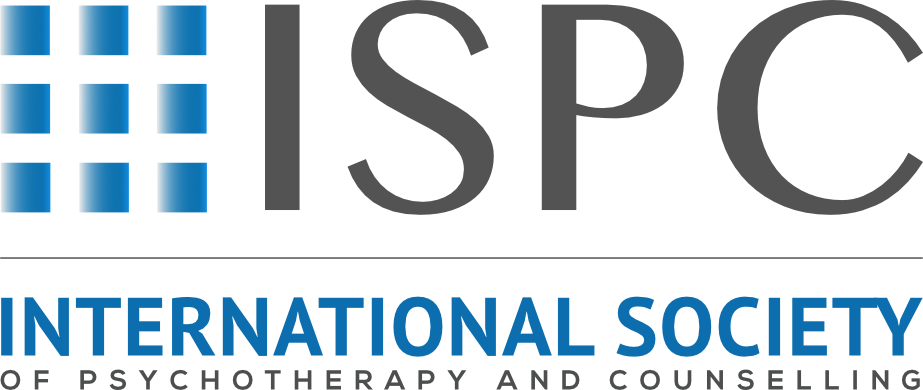For too long, the narrative in the UK counselling world has been narrow:
Article authored by the ISPC
To be legitimate, you must join one of the main counselling bodies. To be ethical, you must follow their rules. To succeed in private practice, you must wear their badge.
But what if that’s not true?
What if great counselling has never been about accreditation stamps—but about presence, courage, and humanity?
What if the very systems meant to “protect” the profession are, in fact, failing counsellors—especially those just starting out, working independently, or trained outside traditional routes?
It’s time to move beyond SCOPED—a model that prioritises compliance over connection—and reclaim what really matters.

WE ARE THE ARTISTS
The Myth of the “Big Counselling Bodies”
Let’s be honest: the main counselling bodies have shaped the profession. But in doing so, many have become institutions first, communities second.
They speak the language of risk management, policy updates, and renewal deadlines—not the quiet, sacred work that happens in a therapy room at 6 p.m. with a client who’s finally ready to speak.
And for early-career therapists, the cost is steep—financially and emotionally.
- Annual fees that rival half a month’s rent
- CPD logs that feel like homework, not growth
- Rigid pathways that exclude brilliant practitioners trained online, abroad, or through alternative colleges
This isn’t support. It’s bureaucracy disguised as professionalism.
And it’s leaving thousands of dedicated, ethical counsellors feeling like outsiders in their own field.
What Actually Makes a Great Counsellor?
Hint: it’s not a certificate from a regulatory body.
Research—and lived experience—tells us that effective therapy hinges on three things:
- The therapeutic relationship – built on trust, empathy, and congruence (hello!, person-centred counselling!)
- Ongoing reflection and supervision – not box-ticking, but genuine learning
- Personal integrity – showing up with humility, self-awareness, and a commitment to do no harm
Carl Rogers knew this decades ago. The “necessary and sufficient conditions” for change don’t include “membership number” or “accredited course provider.” They include genuineness, unconditional positive regard, and empathic understanding.
In other words: great counselling is human, not institutional.
You don’t need permission to embody these qualities. You need support, not surveillance.

Person-Centred Counselling in a Bureaucratic World
Ironically, the person-centred approach—which trusts the client’s inner wisdom—often clashes with professional bodies that distrust the therapist’s.
Why must we prove, over and over, that we’re “doing it right”?
Why are we treated as risks to manage, rather than professionals to empower?
True person-centred practice extends to how we treat therapists too.
It says: “You know your clients. You know your limits. You’re committed to growth. We trust you.”
That’s the foundation ISPC is built on—not because we reject standards, but because we believe ethics flow from practice, not policy.
Can You Set Up Private Practice Without the “Big Bodies”?
Yes, you absolutely can build a thriving private practice without joining the dominant organisations. Here’s how:
1. Get Proper Insurance
Professional indemnity insurance is non-negotiable. But you don’t need a big body to get it—many insurers work directly with independent practitioners or smaller societies like ISPC.
2. Join a Supportive Community
Isolation is the enemy of good practice. Seek out peer supervision groups, online forums, or membership collectives that offer real connection—not just a directory listing.
3. Use the ISPC Ethical Framework & Build Your Own
Anchor yourself in core principles (confidentiality, boundaries, competence) and commit to regular supervision. Document your decisions—not for an auditor, but for your own clarity.
4. Market Authentically
Clients don’t care which body you belong to. They care: “Do you get me? Can I trust you?”
Focus your website and messaging on your approach, your values, and your humanity—not your affiliations.
5. Keep Learning—Your Way
CPD should feed your practice, not drain your time. Choose workshops, reading groups, or reflective writing that genuinely deepen your work—not just “accredited” hours that check a box.

A New Vision: Counselling That Breathes
The future of counselling isn’t narrower—it’s wider, wiser, and more inclusive.
It includes:
- The student who trained online due to chronic illness
- The integrative therapist blending modalities with care
- The late-career counsellor whose wisdom isn’t “outdated”—it’s essential
- The early practitioner building a practice on their own terms
None of them need permission to be ethical. They need a community that sees them, supports them, and stands with them.
That’s what ISPC offers: a professional home for counsellors who actually do the work.
We’re not anti-standards. We’re pro-therapist.
We believe you can uphold high ethics without drowning in bureaucracy.
We believe private practice can be sustainable, ethical, and deeply human—without a gatekeeper’s stamp of approval.
You Don’t Need Their Badge. You Already Have What Matters.
The “big counselling bodies” may hold influence—but they don’t hold the monopoly on good therapy.
Great counselling lives in the room.
In the pause before a client speaks.
In the courage to say, “I don’t know—but I’m here with you.”
In the humility to keep learning, even after decades.
If you’re building a private practice rooted in person-centred values, integrity, and real connection—you’re already on the right path.
You don’t need to fit into their box.
You just need the right people beside you.
And we’re here—not as regulators, but as fellow travellers.
Welcome to a new way forward.
ISPC offers a simpler, smarter, and more affordable way to belong to a professional body that truly supports independent therapists.
Learn more or apply today: www.ispc.org.uk
Membership open to students, qualified counsellors and psychotherapists committed to ethical, supervised practice in the UK. You are in charge, we are here to support!
Further Resources for ISPC Members:
We encourage all ISPC members to consider contributing to ISPC News and sharing their unique perspectives and insights. Your contributions help build a valuable resource for the therapy and counselling community.
And lastly, we appreciate those that have already come forward with their ideas and writings, we are uploading these blogs over the next few weeks and months.
Kindest Regards
ISPC Team









